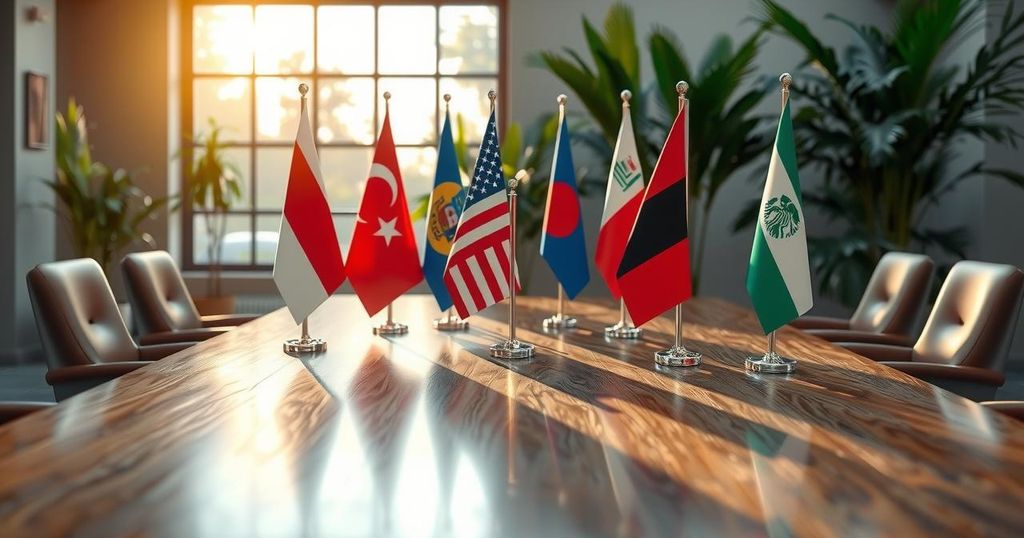Qatar’s Prime Minister Visits Beirut Amid Renewed Gulf Interest in Lebanon

Qatar’s Prime Minister Sheikh Mohammed bin Abdulrahman visited Lebanon to engage with new political leaders, marking a renewed GCC interest in the country following the election of President Joseph Aoun. This visit comes as Hezbollah’s influence wanes, prompting Gulf states to consider re-engagement with Lebanon amid ongoing political transformations.
On Tuesday, Qatar’s Prime Minister, Sheikh Mohammed bin Abdulrahman, arrived in Beirut to hold discussions with senior Lebanese officials, marking the first visit by a senior official from Doha since the election of President Joseph Aoun last month. This visit signals a potential revival of Gulf Cooperation Council (GCC) engagement with Lebanon, following a two-year political stalemate that was recently resolved by Aoun’s election and the designation of Nawaf Salam as Prime Minister, though Salam has not yet formed a government.
The Qatari Prime Minister’s agenda includes meetings with both President Aoun and Prime Minister-designee Salam, as well as caretaker Prime Minister Najib Mikati. Aoun and Salam are viewed as representatives of change, distinct from Lebanon’s entrenched ruling elite, which has faced criticism for the country’s ongoing crises. Qatar has historically supported Lebanon, especially after the 2006 conflict between Israel and Hezbollah, and played a pivotal role in efforts to overcome the political vacuum in the past.
The recent visit by Sheikh Mohammed demonstrates a broader trend of Gulf nations reengaging with Lebanon, following a long period of reduced support due to Hezbollah’s growing influence. This interest has resurfaced as Hezbollah’s power has waned in the wake of Israeli military actions targeting its leadership and resources. Notably, Saudi Foreign Minister Prince Faisal bin Farhan had previously visited Lebanon, marking the first such visit from the Kingdom in 15 years.
In recent months, Lebanon has transitioned from a prolonged political impasse to a newly elected presidency under Joseph Aoun, with Nawaf Salam as Prime Minister-designate. This pivotal change has opened the door for renewed international interest, particularly from Gulf states, which have historically played a significant financial role in Lebanon’s economy. High-level visits from Qatari and Saudi officials suggest a strategic move to re-establish relations and support amidst shifting political dynamics.
The visit of Qatar’s Prime Minister to Lebanon highlights the potential for renewed collaboration between Gulf nations and Lebanon’s emerging leadership. As both Aoun and Salam strive to foster stability, the international community, particularly the GCC, appears willing to rebuild its political and financial support for Lebanon. This development is crucial for Lebanon as the country seeks to navigate its complex political landscape and recover from deep-seated crises.
Original Source: www.thenationalnews.com








